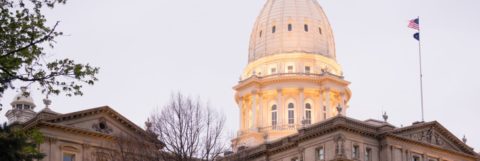Local Preemption: SB 1173 would have allowed municipalities to create their own local labor laws, such as minimum wages and mandatory family medical leave, resulting in a patchwork of labor laws across the state.
Polluter Pay: SB 605–611 would have overturned the standard for Michigan’s environmental cleanup and a nationwide framework for fair industry standards.
Price Gouging: HB 5895–97 would have severely overstepped government regulatory powers, leaving small businesses to foot the bill for supply chain challenges.
Tax Evaluation Changes: HB 5865-66 called for the exclusion of abandoned properties and storefronts from tax evaluations, which would result in higher tax bills in economically challenged areas.
Bad Faith Legislation: SB 329 would have forced insurance companies to pay claims first and ask questions later. It would have opened the litigation floodgates and forced unnecessarily high settlements, benefiting attorneys but increasing the cost of insurance for consumers and businesses.
Data Privacy: SB 659 would have instituted a data privacy law in Michigan. While this legislation went through many iterations, it was inconsistent with other statutes being considered nationwide and would have made implementation nearly impossible.
TENORM Ban: SB 1052 would have removed Michigan from the list of five states that accept TENORM, which is commonly created in manufacturing processes. This would have resulted in higher costs for manufacturers needing to ship their waste out of state.
Michigan Consumer Protection Act: SB 1022 would completely change the Michigan Consumer Protection Act, opening most businesses up to lawsuits, including class action lawsuits. However, this issue is still pending before the Michigan Supreme Court.


